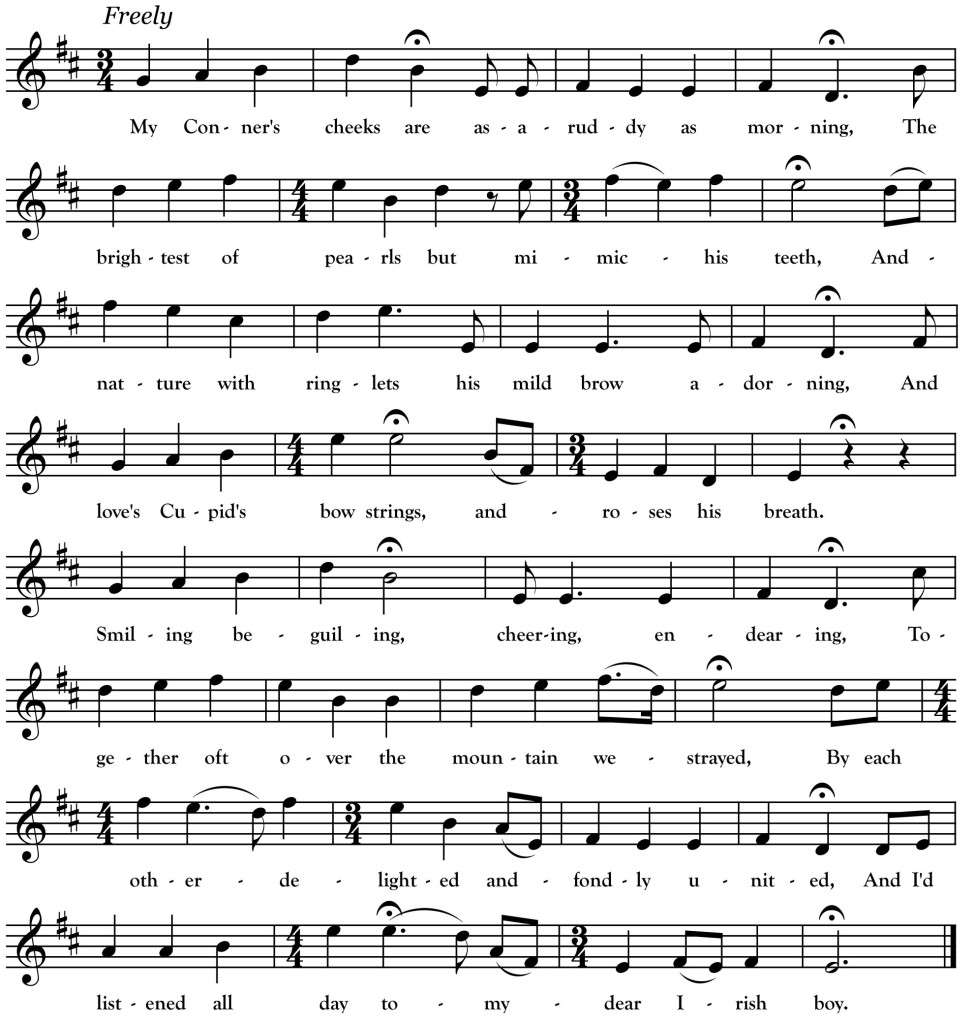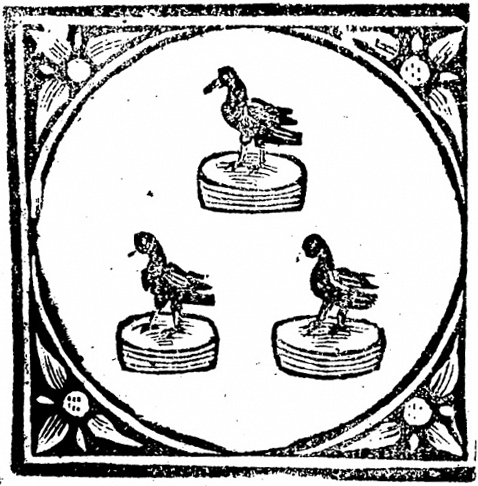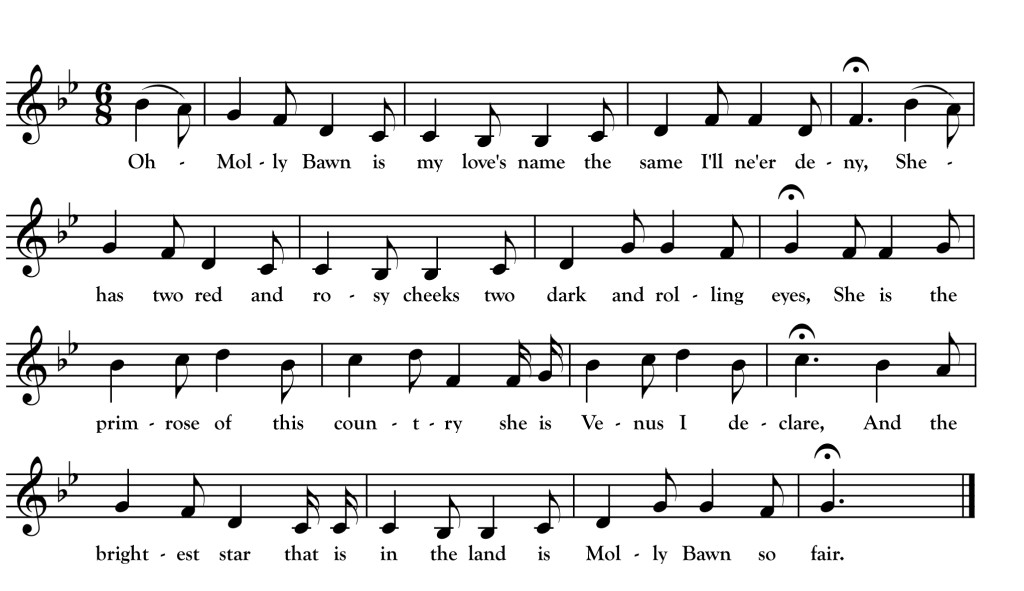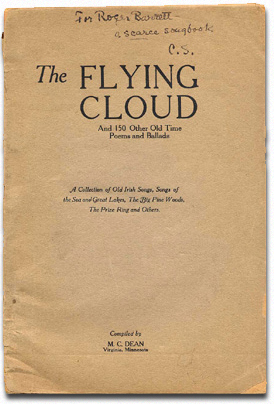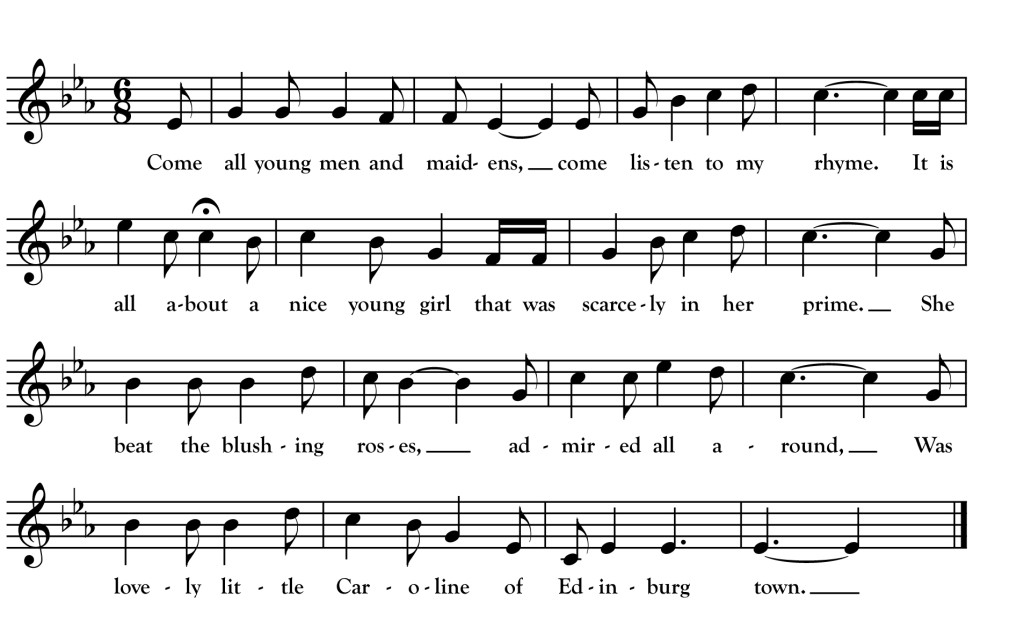My Dear Irish Boy
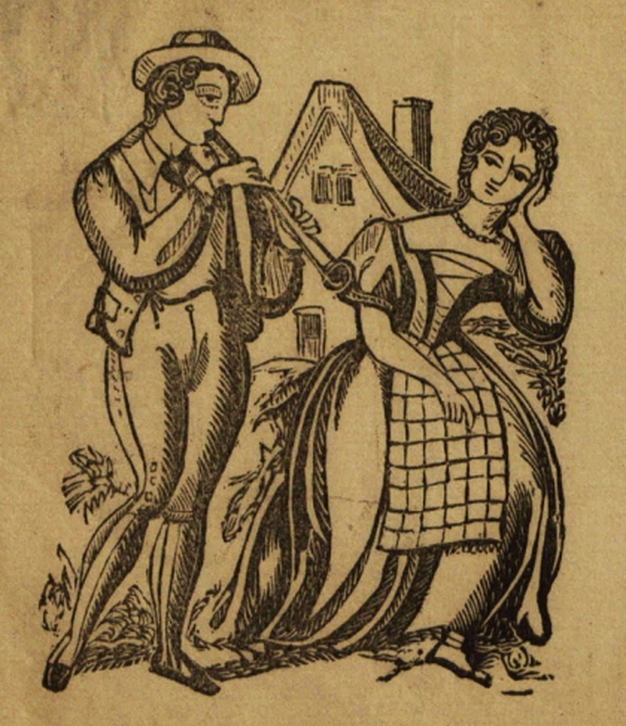
My Connor’s cheeks are as [a] ruddy as morning,
The brightest of pearls but mimic his teeth,
And nature with ringlets his mild brow adorning,
And love’s* Cupid’s bow strings, and roses his breath.
Smiling, beguiling, cheering, endearing,
Together oft over the mountain we strayed,
By each other delighted and fondly united,
And I’d listen all day to my dear Irish boy.
Now the war is all over and my love has not returned,
I’m afraid that some envious plot has been laid,
And that some cruel goddess has him captivated,
And left me to mourn a dear Irish maid.
And smiling, beguiling, cheering, endearing,
And together oft over the mountain we strayed,
By each other delighted and fondly united,
I would listen all day to my dear Irish boy.
*most broadside versions have “his hair” instead of “and love’s”—makes a little more sense to me.
This month I chose a Beaver Island, Michigan version of a song that is often played as an air by instrumentalists: “My Dear Irish Boy.” This version comes from the prolific singer Johnny W. Green of Beaver Island who sang it for Alan Lomax in 1938. The Lomax recording was recently digitized and made available online by the American Folklife Center (along with all the other fascinating recordings made by Lomax in Michigan that year). You can listen to Green himself sing it here.
The recordings made by Lomax in Beaver Island include a wealth of rare Irish songs. They also include chat about local singers, travelling to the “main land” for lumbering and other work and family connections to Ireland (mostly Donegal). It is a collection well worth checking out!
There’s a beautiful video of Clare fiddler Joe Ryan playing the air version of this song here. The air has some extra parts to how Green sang it.

